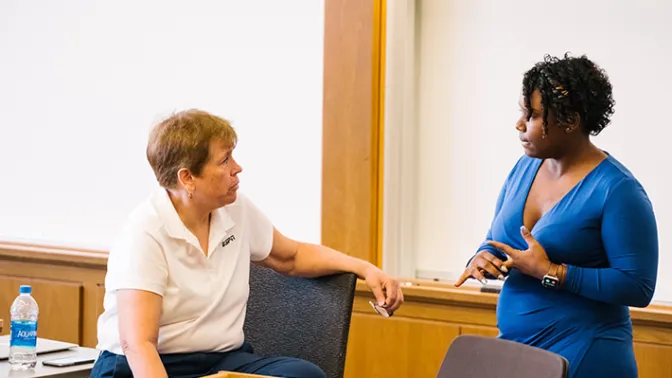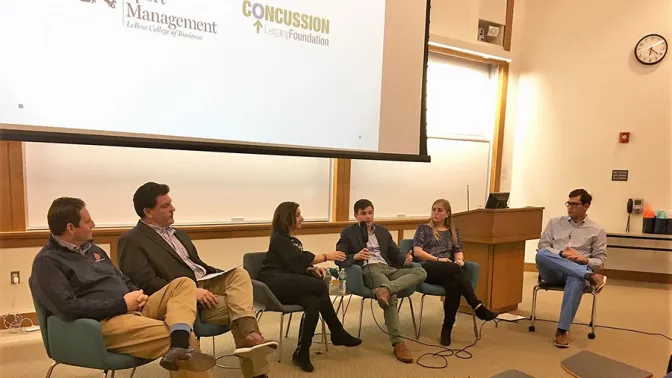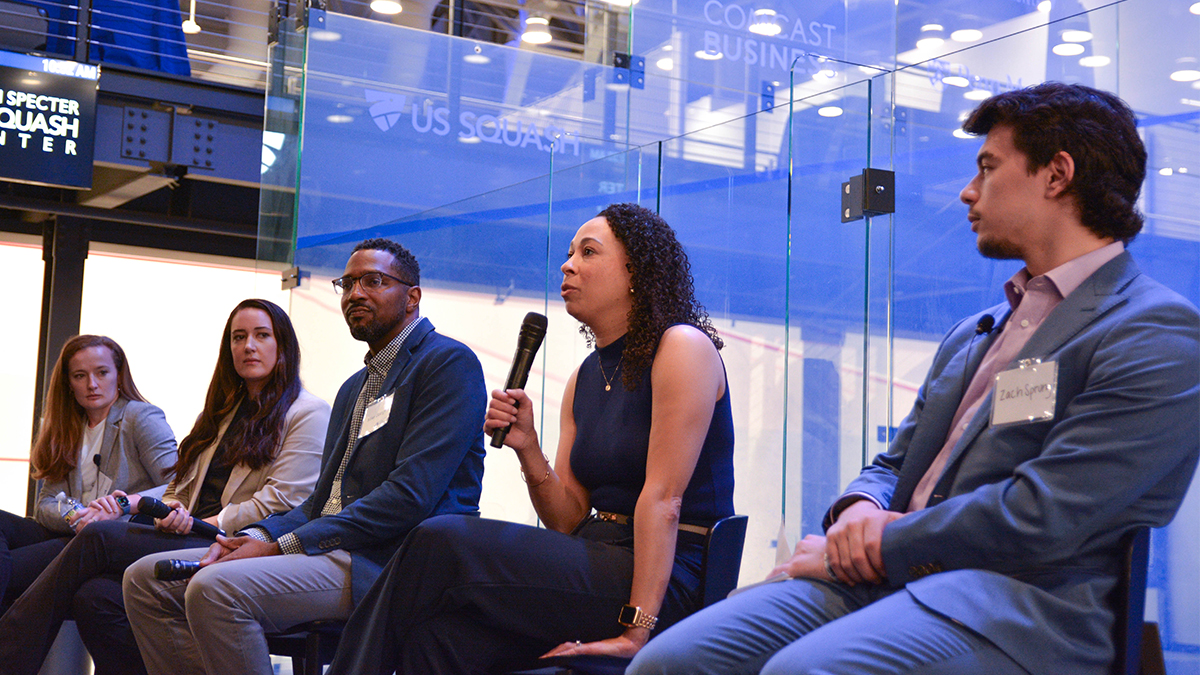
Finding Identity Beyond Athletics: LeBow Sport Business Conference Tackles Mental Health in the Industry
At any level — from professional to collegiate to youth — an athlete’s identity can be tied to their sport. But what happens when that sport is no longer present in their lives?
Losing your identity is losing your sense of self, which is why an abrupt ending to an athlete’s career to factors like injury could leave them feeling lost.
“(Athletes) have the capacity to do more (than just their sport). They have the capacity to be more. But being more is built in their well-being,” said Tim Massaquoi, a licensed professional counselor and former NFL tight end.
Massaquoi served as the keynote speaker of A Catalyst for the Cause: Fostering Greater Equity in Sport, hosted by Drexel LeBow’s Department of Sport Business at the Arlen Specter US Squash Center on Thursday, April 18 and moderated by Zach Sprung, BSBA accounting ’26.
Massaquoi’s keynote was accompanied by other industry professionals sharing their experiences.
One session, “An Evolution of Mental Health Resources for Sport Industry Professionals,” highlighted well-being for front-office personnel with panelists Mike Goings, vice president of social responsibility and fan development at the Philadelphia 76ers; Meghan O’Donnell and Sam Ward, founders of EmpowHERed; and Brittany Redman, director of fan services at the Philadelphia Union.
Another panel session, “Student-Athlete Identity,” focused on sports psychology at the youth and collegiate levels and included Zach Hankle, Drexel Athletics psychologist; Walt Norley, founder and CEO of OnBalance; and Lauren Ruhl, sport psychology consultant and therapist at Greenepsych Clinical & Sport Psychology.
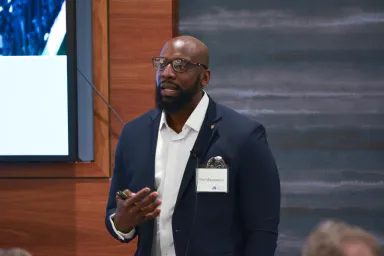
During his keynote, Massaquoi said his identity was built on his athleticism from early childhood. That sporting gift took him to the University of Michigan, where he watched fellow Wolverine football stars go on to join the professional league and live lavish lifestyles that he also wanted.
“I wasn’t invested in doing anything else other than being an NFL player,” he said, noting that a knee injury derailed that dream early in his professional career.
He was left to reevaluate that dream and now thinks back to the early stages of his time at Michigan. He had an interest in pursuing political science, but was swayed from the idea by an academic advisor who felt it may be too challenging with his football schedule. He said not having a career pursuit away from football further tied his identity to the game, which led to difficult years once injury took him out of the sport.
When Massaquoi counsels athletes, he says that the focus is on using their values to form their identity.
The panel on sport psychology agreed that a role as an athlete plays such a big part of a young competitor’s identity, and situations such as poor performance or injury can really cause a negative impact.
“A lot of kids don’t know how to handle adversity. They don’t know how to stay part of the community or how to stay part of the team,” said Ruhl, who looked back on her own experiences with injury as a basketball player.
“A lot of times you don’t go to practice (when you’re injured). You’re doing your own physical therapy, so you don’t hear the inside jokes. You don’t get that camaraderie.”
This ongoing conversation has come to the forefront in society and allowed people in positions of power such as coaches to really see the importance of mental well-being.
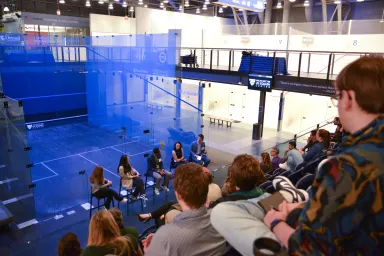
Coaches want their athletes using these resources, and it’s crucial to encourage it, but it’s not something that can be mandated.
“I’m not in the business of forcing people to come see me — that can actually do more harm than good,” said Hankle, who joined Drexel in February as the athletic department’s first full-time psychologist.
“Drexel Athletics is trying to make my services as front and center as they can be, so that when student-athletes are ready to talk, they know I’m here.”
The mental wellness conversation in sports goes beyond the athletes to industry professionals, and the front-office panelists discussed a checklist of areas to look for in a workplace environment, including diversity, flexible scheduling and proper support, and stressed the importance of asking how these resources are being used.
Ask these questions “so they don’t just have these resources to check a box,” said Ward, whose time in the industry included stops with espnW and the Boston Red Sox. “(Ask) what are they doing every single day to better this?”
